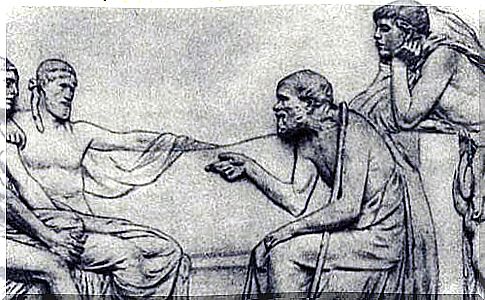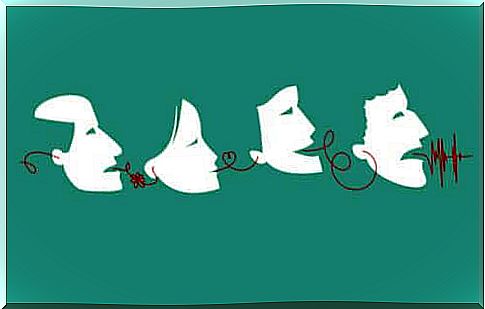Socrates’ Three Sieves To Filter Rumors

The three sieves of Socrates is an anecdote that invites us not to allow false, useless or harmful information or messages to reach us. It is applied to gossip, but it can also be extended to all information circulating on the net or through the media.
The anecdote of the great Greek philosopher that has come down to our days is still considered a great lesson in life, particularly suitable for situations in which gossip and rumors dominate.
The three sieves of Socrates tells of how once one of his disciples presented himself to Socrates in a state of great agitation, telling that he had just met a friend of the philosopher and that he was intent on speaking ill of him.
On hearing those words, Socrates asked his disciple to calm down. Later, she asked him to wait a minute. Before hearing what he had to say to him, he decided that the message had to go through three sieves. If he hadn’t gotten past them, the message wouldn’t have been worth hearing.
The three sieves of Socrates
As was his custom, the wise philosopher put the following question to his anxious disciple: “Are you absolutely certain that what you are about to tell me is true?” . The disciple thought about it for a moment. In fact, he couldn’t be sure that what he had heard could be classified as backbiting. It was basically a question of perspective. “So you don’t know if it’s all true or not”, Socrates concluded while the disciple had only to nod.

The master insisted by asking a second question: “Is what you are about to tell me positive or not? “. The disciple admitted that it was not positive information, quite the opposite. He had to bring back words that, in his judgment, would cause him discomfort and pain. Then Socrates ruled: “So you are about to bring me some unpleasant news, but you are not sure if it corresponds to the truth.” And the disciple admitted that it was so.
Finally, Socrates asked the disciple a third and final question. “ Will what you are about to tell me about my friend help me in any way? “. The disciple hesitated. In reality he was not convinced that the episode would have any use for the philosopher. The news would have alienated Socrates from his friend, but since he was not sure of the veracity of what he heard, perhaps telling it would not have been of any use.
The truth, the goodness and the usefulness
The anecdote of Socrates’ three sieves tells that, in the end, the philosopher did not want to listen to what the disciple had to tell him. “If what you want to tell me is not true, neither positive nor useful, why would I want to listen to it?” .
Truth, goodness and usefulness are the three sieves of Socrates. According to the Greek philosopher, these are the questions everyone should ask themselves before saying anything. The first: am I sure of the veracity of what I am about to tell? The second: is what I am about to say positive information? And the third: is it really necessary to say it?

This triple filter is an excellent guide to what we want and what we want to hear. It represents a parameter built around what healthy and constructive communication should be. These are the reasons that make this anecdote still so popular.
How to apply the three sieves of Socrates
In everyday life it is not easy to define what is true, good and necessary. These are abstract concepts that are sometimes difficult to apply. For this there are some additional questions that help apply Socrates’ three sieves.
- Faced with the true fact: am I sure? I can try it? Would I be able to support him in front of anyone? Would I be willing to gamble my reputation for this?
- Faced with the positive: Does it make the other person feel better or myself? Will it arouse positive emotions? Will it improve the condition of the people involved?
- Faced with the necessary or useful fact: knowing the news, will my life or that of the person concerned improve ? Will that person be able to take any action thanks to this fact? The eventuality of not knowing it, how much could it affect the person concerned?

As mentioned at the beginning of the article, Socrates’ three sieves are mainly aimed at gossip and rumors. Applying them will be able to silence these rumors prematurely. Yet, it is also a valid process for other types of messages: those we receive through the media or social networks. Much of the information that surrounds us today is often malicious and wrong.








